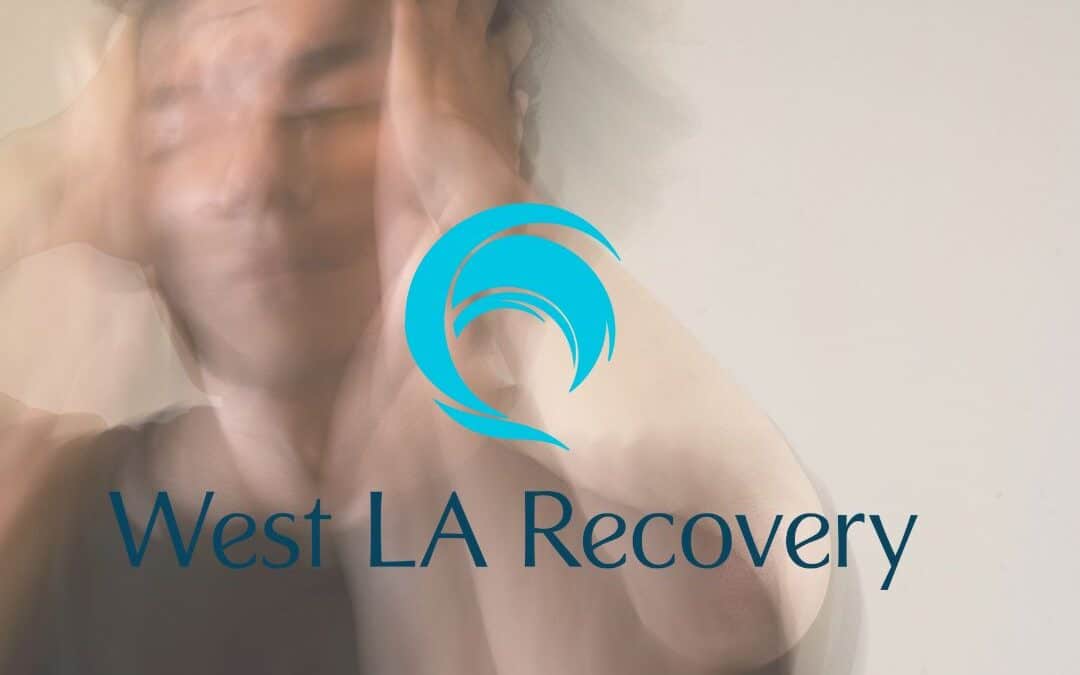Relapse Prevention: Strategies for Maintaining Sobriety
The path to recovery from addiction is a courageous one, filled with both triumphs and challenges. While achieving sobriety is a significant milestone, it’s crucial to understand that relapse is a possibility. Relapse prevention is an essential component of long-term recovery, equipping individuals with the tools and strategies to navigate cravings, triggers, and high-risk situations.
At West LA Recovery, we understand the importance of relapse prevention and offer comprehensive programs to support your journey. We believe in empowering individuals with the knowledge and resources needed to build a strong foundation for lasting sobriety.
This article explores key relapse prevention strategies you can incorporate into your life, helping you stay focused on your recovery goals.
Identifying Your Triggers: Understanding the “Why” Behind Cravings
The initial step in relapse prevention involves uncovering your triggers. Triggers are internal or external cues that can intensify cravings and increase your risk of relapse. These triggers can manifest in various forms:
- People: This includes associates you used to use substances with or individuals who create pressure to use. For instance, encountering someone from your past who still engages in substance use might provoke cravings or temptations.
- Places: Environments where you previously used substances can act as powerful triggers. Being in a familiar setting associated with past substance use can evoke strong cravings and potentially lead to relapse.
- Emotions: Feelings such as stress, anxiety, boredom, loneliness, or depression can trigger cravings. Emotional states often influence your desire to revert to old coping mechanisms, making it crucial to address these feelings effectively.
- Situations: Certain situations, such as arguments, social gatherings with heavy substance use, or financial difficulties, can also serve as triggers. High-stress scenarios or environments associated with substance use can increase the risk of relapse.
Here’s how to identify your triggers:
- Journaling: Regularly documenting situations, emotions, or people that evoke cravings can provide valuable insights. By keeping a detailed journal, you can effectively recognize patterns and better understand the factors contributing to your cravings. Consequently, this process allows you to identify triggers more clearly and address them proactively.
- Talking to a Therapist: Engaging in discussions about past triggers with your therapist can be highly beneficial. Through these conversations, you can collaborate to develop effective coping mechanisms and strategies specifically tailored to manage your unique triggers. In addition, this therapeutic support helps refine your approach and enhances your ability to handle cravings more effectively.
- Mindfulness: Practicing mindful awareness allows you to identify triggers before they escalate into strong cravings. By staying present and aware of your thoughts and feelings, you can more effectively manage and address potential triggers.
Remember, identifying your triggers empowers you to develop effective relapse prevention strategies. By understanding the underlying causes of your cravings, you can create a proactive approach to maintain your recovery and reduce the risk of relapse.
Building a Strong Support System: The Power of Community in Recovery
A strong support system is a cornerstone of successful relapse prevention. To build this essential network, surround yourself with positive, supportive individuals who genuinely believe in your recovery journey. This can include various key elements:
- Therapist: A qualified therapist can offer crucial guidance and support while addressing underlying issues that may contribute to cravings. Through regular sessions, a therapist helps you explore and manage these factors effectively, fostering long-term recovery.
- Support Groups: Connecting with others in recovery provides a sense of belonging, shared experiences, and encouragement. Furthermore, these groups create a supportive space where you can openly share both challenges and successes. As a result, you draw strength from collective experiences, which can significantly enhance your motivation and resilience throughout your recovery journey.
- Family and Friends: It is important to share your recovery journey with loved ones who understand and actively support your efforts. In addition, their encouragement and understanding can provide essential emotional stability and motivation throughout your recovery process. By involving them, you not only gain a support network but also strengthen your commitment to staying on track and achieving long-term success.
Additionally, consider:
- Sponsorship: Engaging with a sponsor in a recovery program can provide valuable mentorship and support. A sponsor’s experience and insights can guide you through difficult moments, offering practical advice and emotional support.
- Recovery Coaches: Recovery coaches offer personalized guidance and accountability tailored to your individual needs. They help you set and achieve goals, navigate challenges, and maintain focus on your recovery path.
Overall, having a robust support system empowers you during challenging times and significantly reduces the risk of relapse. By surrounding yourself with these supportive individuals and resources, you strengthen your foundation for a successful and sustained recovery journey.
Developing Healthy Coping Mechanisms: Replacing Old Habits with New Tools
Relapse prevention involves replacing unhealthy coping mechanisms with healthy ones to manage stress, cravings, and negative emotions. Here are some effective coping mechanisms:
- Physical Activity: Exercise releases endorphins, which improve mood and reduce stress—key factors contributing to healthy coping. Moreover, engaging in regular physical activity can enhance overall well-being and support your recovery process.
- Mindfulness Techniques: Incorporating mindfulness practices such as meditation, yoga, and deep breathing exercises can effectively calm the mind and manage cravings. In addition, these techniques help you stay present and reduce the impact of stress, promoting a balanced emotional state.
- Relaxation Techniques: To further lower stress and anxiety, practice relaxation techniques like progressive muscle relaxation, guided imagery, or listening to calming music. These methods can help soothe your mind and body, making it easier to cope with challenging moments.
- Creative Outlets: Engaging in activities you enjoy, such as painting, writing, or playing music, can offer a healthy distraction and a sense of accomplishment. Furthermore, creative outlets provide an enjoyable way to express yourself and focus your energy positively.
- Self-Care Practices: It is essential to prioritize self-care practices, including maintaining healthy sleep patterns, eating nutritious meals, and incorporating relaxation techniques into your routine. By nurturing your physical and emotional well-being, you build a strong foundation for effective coping and sustained recovery.
By integrating these strategies into your daily life, you can enhance your overall well-being and better manage the challenges that come with recovery.
Creating a Relapse Prevention Plan: A Roadmap for Success
A well-defined relapse prevention plan outlines your personal strategy for managing cravings, triggers, and high-risk situations. Here’s how to create one:
- Identify Your Early Warning Signs: Recognize the emotional, physical, or behavioral cues leading toward a relapse.
- Develop Coping Responses: Plan specific actions you will take when you encounter a trigger or experience cravings.
- Identify Your Support System: Determine who you can rely on for support during challenging times.
- Set Realistic Goals: Establish achievable milestones that celebrate your progress and motivate you to stay on track.
- Practice Self-Care: Prioritize activities that promote your physical, mental, and emotional well-being.
Remember, a relapse prevention plan is a living document. Regularly review and adjust it as your recovery journey progresses.
The Role of Professional Treatment in Relapse Prevention
Professional treatment plays a vital role in relapse prevention. At West LA Recovery, we offer comprehensive programs tailored to your individual needs. Our experienced team provides:
- Individualized Therapy: Addressing underlying issues that contribute to addiction and developing personalized coping strategies.
- Group Therapy: Fostering a supportive community and learning from others’ experiences.
- Medication-Assisted Treatment (MAT): When appropriate, MAT can help manage cravings and withdrawal symptoms.
- Holistic Therapies: Incorporating mind-body practices like yoga, meditation, and acupuncture to promote overall well-being.
Explore West LA Recovery’s Treatment Programs.
Overcoming Relapse: Learning and Growing
Relapse is a common experience in recovery, and it does not define who you are. If you encounter a setback, it is essential to remember the following:
- Be Kind to Yourself: It is important to avoid self-blame and instead focus on learning from the experience. Understand that setbacks are part of the recovery journey and offer opportunities for growth. By being compassionate with yourself, you can better address the underlying issues and continue progressing.
- Seek Support: Reach out to your support system for encouragement and guidance. Connecting with friends, family, or support groups can provide valuable emotional support and practical advice. This external perspective can help you gain clarity and motivation as you navigate through the challenges.
- Return to Your Plan: Revisit your relapse prevention plan and make any necessary adjustments. First, reflect on what led to the relapse, and then consider how you can modify your strategies to address these factors more effectively. Consequently, this step is crucial for refining your approach and reinforcing your commitment to recovery. By making these adjustments, you ensure that your plan remains relevant and effective, ultimately supporting your long-term success.
- Celebrate Progress: Even in the face of setbacks, it is important to focus on the positive steps you’ve taken and the progress you’ve made in your recovery journey. By recognizing and celebrating these achievements, you can boost your confidence and motivation. Furthermore, acknowledging your progress not only reinforces your commitment but also helps maintain a positive outlook. This approach enables you to stay focused on your goals and continue advancing in your recovery.
Relapse prevention is an ongoing process that demands dedication and self-awareness. By consistently implementing these strategies and seeking professional support when needed, you can build a strong foundation for lasting sobriety and continue moving forward on your path to recovery.
Additional Tips for Relapse Prevention
- Healthy Lifestyle Choices: Prioritizing sleep, nutrition, and exercise is essential for overall well-being. Adequate rest helps regulate mood and cognitive function, while a balanced diet supports physical health and energy. Regular exercise boosts mental resilience and physical health, creating a solid foundation for maintaining recovery and reducing relapse risk.
- Time Management: Effective time management helps reduce stress and prevent boredom, which can be triggers for relapse. Organize your schedule, set clear priorities, and engage in productive activities. By minimizing idle time and focusing on achievable goals, you create a structured environment that supports your recovery.
- Avoid Isolation: Staying connected with supportive friends and family is crucial for reducing feelings of loneliness. In addition, social interactions provide emotional support and a sense of belonging, both of which are essential for sustaining recovery. Therefore, it is important to regularly engage with loved ones and participate in community activities. By doing so, you can prevent isolation, which can otherwise increase the risk of relapse.
- Limit Exposure to High-Risk Environments: Avoid places or situations that may tempt you to use substances. Recognize high-risk environments and take steps to avoid them. This might involve changing your routine or finding new activities that align with your recovery goals. Reducing exposure to triggers helps maintain your commitment to sobriety.
- Practice Mindfulness: Mindfulness techniques, such as meditation or deep breathing, can help reduce cravings and improve emotional regulation. By staying present and managing stress effectively, you become more aware of your thoughts and feelings without judgment. Mindfulness enhances emotional resilience, aiding in your recovery journey.
These strategies—combined with a mindful approach—can support your recovery and help prevent relapse, providing a more stable and fulfilling path forward.
Conclusion
Relapse prevention is a crucial aspect of addiction recovery. By understanding your triggers, building a strong support system, developing healthy coping mechanisms, and creating a personalized relapse prevention plan, you can significantly reduce your risk of relapse. Remember, recovery is a journey, and setbacks are a normal part of the process. With perseverance and the right support, you can achieve lasting sobriety and build a fulfilling life.
West LA Recovery is committed to supporting your recovery journey. Our comprehensive programs and experienced team are here to help you overcome challenges and achieve your goals. Contact us today to learn more about our services.
Additional Resources:
- Substance Abuse and Mental Health Services Administration (SAMHSA)
- National Council on Alcoholism and Drug Dependence (NCADD)
- Alcoholics Anonymous (AA)
- Narcotics Anonymous (NA)
Remember: This article provides general information and is not a substitute for professional medical or mental health advice. If you are struggling with addiction, please seek help from a qualified healthcare provider.







